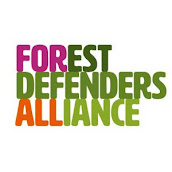December 17th 2020
Dear First Executive Vice-President Timmermans,
Dear Commissioner McGuinness,
Joint NGO Comment EU Sustainable Taxonomy Draft Delegated Act
We, the undersigned organisations, would like to raise the following critical issues in response to the EU Sustainable Taxonomy Draft Delegated Act.
Given the urgency of the climate crisis, the EU Taxonomy needs to be much more ambitious
than what is currently allowed under EU legislation. In particular, treating forest biomass as a “zero carbon” fuel for energy production dangerously undermines efforts to reduce emissions because forest regrowth to recapture emissions takes decades to centuries, time we do not have in the race to avoid the worst impacts of climate change.
The EU’s Biodiversity Strategy - a core initiative to help reverse the negative trends of the health of the EU’s biodiversity - raised the issue of the impacts forest biomass burning has on biodiversity. The Partnership for Policy Integrity’s Paper Tiger report demonstrates the clear failures of existing RED forest biomass“sustainability criteria” (to which the draft DA defaults) to adequately protect the climate and biodiversity. More recently, over 100 civil society organisations have called for an end to the
eligibility of forest biomass as a source of “renewable energy” under RED and to the subsidies and incentives that flow from this eligibility. The Draft Delegated Act, which proposes that most forest biomass sourced directly from forests is considered “sustainable” is clearly out of step with these warnings and statements from scientists, civil society and the EC’s own staff. The perverse climate impacts of burning forest biomass are clear. The Technical Expert Group had already recognised that the REDII eligibility criteria are not sufficient safeguards when it proposed additional, albeit weak,criteria in its technical report. Accordingly, forest biomass does not provide a substantial contribution to climate change mitigation and arguably accentuates the problem of biodiversity loss, and hence, should not be classified as “sustainable” and removed from the Taxonomy.
The TEG recognised the nonsensical nature of small hydropower plants - the disproportionate environmental damage small hydropower installations cause whilst creating only small amounts of electricity, and recommended that “construction of small hydropower (<10MW) should be avoided.” This is in line with the TEG’s “Do No Significant Harm” (DNSH) criteria where activities “must avoid significant harm…to the protection of healthy ecosystems”. The environmental damage caused by small hydropower, particularly those built in cascades, can be similar to, or even greater than, the more widely known negative impacts of large hydropower plants. In the EU, 60% of rivers do not have a good ecological status, fish and mollusc species comprise the two most threatened taxonomic groups, migratory fish populations have declined by 93% between 1970 and 2016 and in the Mediterranean Basin, including countries from Portugal to Turkey, 161 of the region’s 251 threatened fish species will be negatively impacted by planned small hydropower plants alone. Consequently, 150 NGOs have recently called for an end to the building of hydropower plants in Europe. Support for hydropower in the Draft Delegated Act is clearly out of step with civil society and scientific calls to end the damage that hydropower has caused and continues to inflict on freshwater systems. The DNSH criteria are clearly breached. Given the almost nonexistent benefit that new hydropower plants can play in greening the economy, hydropower should also not be included in the Taxonomy.
Amongst the EU Commission Technical Expert Group’s proposed screening criteria was the concept of a declining ceiling on the greenhouse gas intensity of energy production over time. This critical concept to help achieve climate neutrality by mid-century has been unfortunately removed from the Draft Delegated Act. Recently, a letter signed by 123 scientists was published in the media stating that there is a “disconnect” between the EU’s climate goals and the EU Taxonomy. This gaping omission must be rectified and the concept of the declining intensity ceiling reinstated in order that the Sustainable Finance mechanism be brought in line with the EU’s other climate objectives and strategies, including the European Green Deal, the EU’s commitment to the Paris Agreement and its proposed European Climate Law.
The EU Taxonomy needs to be scientifically robust. These critical issues must be addressed in order for this to be the case.
Gabriel Paun
PresidentAgent Green, Romania
On behalf of the following organisations:
Gabriel Schwaderer
Executive DirectorEuroNatur Foundation, Germany
Ulrich Eichelmann
CEORiverwatch, Austria
Juraj Lukáč
ChairLesoochranárske Zoskupenie VLK, Slovakia
Mary Booth
Director,PFPI, International
Zoltan Kun
Secretary of the BoardFriends of Fertö Lake, Hungary
Maarten Vischers
Board Member and SecretaryLeefmilieu, Netherlands
Martin Luiga
International Cooperation CoordinatorEstonia Forest Aid, Estonia
Csaba Mezei
General SecretaryCEEWeb for Biodiversity, Hungary
Christoph Promberger
Executive DirectorFoundation Conservation Carpathia, Romania
Raul Cazan
President2Celsius, Romania
Dimiter Koumanov
Member of the BoardBalkanka Association, Bulgaria
Nicolae Mercurean
PresidentTransmont Fagaras, Romania
Ibrahim Turak
Pusti me da tečemBosnia and Herzegovina
Tibor Mikuska
CEO, Croatian Society for Birds andNature Protection, Croatia
Rok Rozman
CEO, Leeway Collective and Balkan RiverDefence movement, Slovenia
Jarosław Krogulec
Head of ConservationOTOP/BirdLife Poland, Poland
Jana Ballenthien
Forest CampaignerROBIN WOOD, Germany
Marieka Vogt
ChairFree Rivers Fund, Austria
Natasa Kovacevic
Executive DirectorNGO Green Home, Montenegro
Johan Vollenbroek
Director, Mobilisation for theEnvironment, Netherlands
Codruta Nedelcu
PresidentARIN, Romania
Dan Trifu
Vice PresidentEcoCivica, Romania
Doru Mitrana
PresidentMai Mult Verde, Romania
Vera Knook
FounderRiver Collective, Austria
Robert Oroz
GotušaBosnia and Herzegovina
Elena Rastei
DirectorZero Waste, Romania
Radosław Ślusarczyk
Chair, Stowarzyszenie Pracownia na rzeczWszystkich Istot, Poland
Daniela Mitrofan
PresidentOrganizația Reset, Romania
Andreea Leonte
PresidentAsociația MăEduc, Romania
Mihai Diac
Founder, Grupul de inițiativă CodriiIașilor, Romania
Elvys Sandu Prisecaru
PresidentAsociația Mai Bine, Romania
Oana Neneciu
Executive Director, Centrul pentruPolitici Durabile Ecopolis, Romania
Florin Stoica
PresidentAsociația Kogayon, Romania
Fenna Swart
DirectorComite Schone Lucht, Netherlands
Siim Kuresoo
Member of Executive CommitteeEestimaa Looduse Fond (Estonian Fund for
Nature), Estonia

Reacties
Een reactie posten